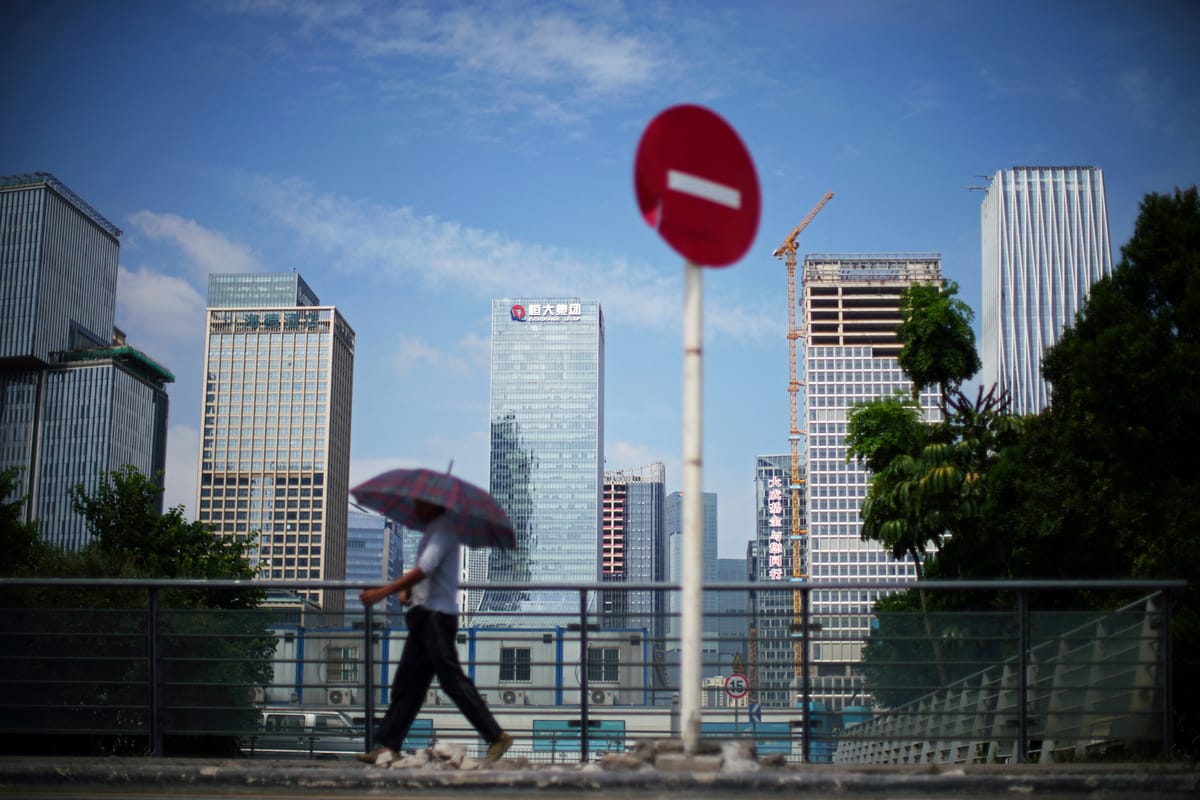It’s over for Evergrande – the Chinese property giant has been ordered to liquidate
Justice Linda Chan finally ordered the liquidation of Evergrande on Monday in Hong Kong.

A few minutes every morning is all you need.
Stay up to date on the world's Headlines and Human Stories. It's fun, it's factual, it's fluff-free.
The backstory: Once China's biggest property giant, Evergrande has been thriving since 1996 under the leadership of founder and chair Hui Ka Yan. Following the developer's massive success in real estate, it expanded its ventures into sports, entertainment, finance, health, cars and agriculture. But, in 2020, Beijing introduced new regulations to rein in the mounting debts of major real estate players like Evergrande. Its success came crashing down as it racked up more than US$300 billion in liabilities, winning the company a new title – the world's most indebted property developer. It didn't stop there, though. In 2021, it also became the first property giant to default on its debts, and this set off a chain reaction, with defaults piling up, houses left unfinished, homebuyers protesting and the whole Chinese real estate market in crisis.
More recently: To deal with this crisis, the company made plans to restructure its debt, saying it could get back to normal operations within three years if all went according to plan. Evergrande has been in and out of court for about a year and a half trying to get this debt restructuring plan passed – and it's been through a whopping seven extensions. But things pretty much fell apart in September when Evergrande said its founder, billionaire Hui, was under investigation for "suspected illegal crimes."
The development: After the nonstop problems for Evergrande, then failing again to convince the court it had a doable restructuring plan (and requesting yet another three months of leeway on its debts), Judge Linda Chan said, "Enough is enough." Chan ordered the liquidation of the property giant on Monday in Hong Kong, with shares of the company plunging by more than 20% after the hearing before being halted.
China's Supreme Court and Hong Kong's Department of Justice have signed an agreement to recognize and enforce civil and commercial judgments between the city and the mainland. But there's a lot of legal red tape there, so it's not clear just how the process will go. Nearly all of Evergrande's assets are in the mainland, and many people are still waiting for the real estate they've already paid for to be built. So, China may want to see those developments completed. Either way, the whole thing is expected to take months, maybe even years.
Key comments:
Justice Linda Chan delivered the ruling on Monday morning, saying, "It is time for the court to say enough is enough."
"Our priority is to see as much of the business as possible retained, restructured, or remain operational," said Wing Sze Tiffany Wong, one of the managing directors at Alvarez & Marsal Asia, the firm appointed to oversee the liquidation process.
"Evergrande's liquidation will pose more challenges to itself and other developers, but it will only have a limited impact on the already battered property sector and the macroeconomy," Gary Ng, an economist at Natixis in Hong Kong, told Al Jazeera.
"As most of Evergrande's assets are in mainland China, there are uncertainties about how the creditors can seize the assets and the repayment rank of offshore bondholders," Ng said.




Comments ()